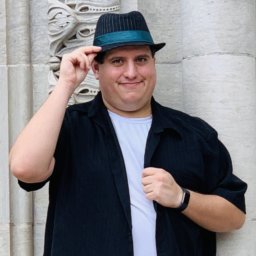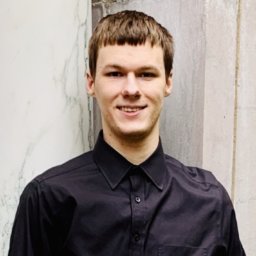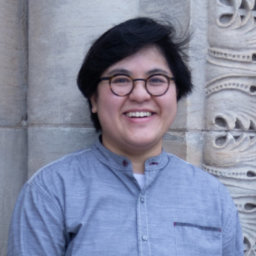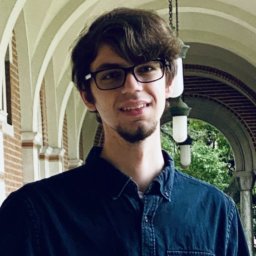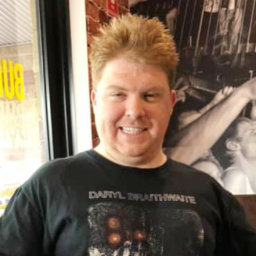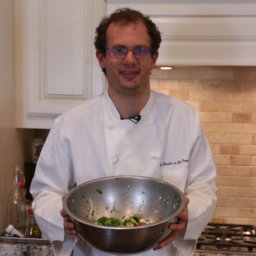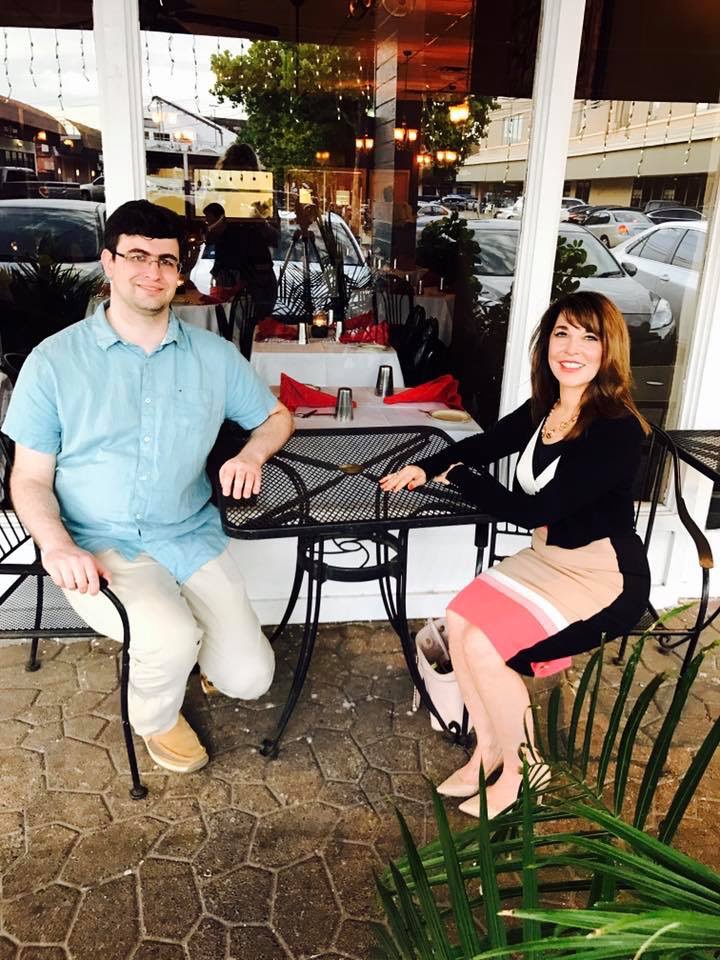
REFLECTION
Sometimes I find myself questioning whether I will ever achieve any of the goals in life that I wish to achieve, or if I even deserve to do so; whether or not the problems that my ASD creates in my life rightfully preclude me from ever reaching success and happiness. I question whether or not I am a good person, if the antisocial, overreactive qualities that I have because of my ASD make me a close-minded, cantankerous grouch. I question whether the things I say are pushing away the few people I call friends, whether my opinions and passions are ‘acceptable,’ and whether or not life even continues to be worth living in the face of these vast, anxiety-inducing questions that (at least on the surface) don’t seem to have answers in my favor.
People with high functioning autistic spectrum disorder, you see, are often very quick to question themselves and every little thing that happens in their lives. Being as intelligent as many who are diagnosed with ASD are is akin to being told that an unknown-but-significant fraction of the things they experience in their daily lives are simulations or holograms or hallucinations. People with High Functioning ASD often experience themselves having something of a crisis of reality. “Is that person being rude, or am I just being overly sensitive” they may ask. “Was that statement I just made offensive even though it seemed so innocuous to me? Why do people look down on me for loving what I love when it seems so obvious why it’s worth loving? Are they just ignorant to the reasons the thing I love is so great, or am I just ‘being autistic’ again?”
Questions I’ve asked myself recently, for example, focus on who and what I would hypothetically be without ASD. Would I still like the things I like? Would I still be comfortable around the friends I’m currently comfortable around? Would I still write as well as I currently feel I do?
The answer is, of course, irrelevant and ultimately unanswerable. Autism is a part of us and it’s not an easily distinguishable part. Human beings are not a Jenga tower with clearly defined bits that are definitively ‘autistic’ that can be removed while the tower remains standing and can still be called a ‘Jenga tower.’ Rather, we are more like a chemical formula. Take the chemical formula to baking soda, for example, NaHCO3. All of the components of baking soda are ingrained with one another to make it baking soda. If you remove one of the oxygen atoms you get sodium hydrogen carbonite. Remove the Sodium and you get bicarbonate. Remove anything from the chemical formula of baking soda and you get something entirely different. Autism is a part of us and that is not only impossible to change, but if it were to change it’s more than likely that the resulting person would be so different from the original that they would be unidentifiable. It is impossible to know.
So what does this mean for us? Well, if we cannot reject this part of us that leaves us with two options; ignore it, or embrace it.
Ignoring it may work for some people, but it would likely only work for the rare, lucky few who are so high-functioning that it can slip by unnoticed. Perhaps it might also work for those who are SO incredibly talented that, while it doesn’t slip by unnoticed, it becomes ‘forgivable’ in the face of their brilliant and incomparable talents, so that they end up described as not so much autistic, but merely ‘eccentric.’ Unfortunately, this is not the greater majority of us. While I like to feel that most people with high-functioning autism are ‘specialists’ where neurotypical folks are ‘generalists,’ the fact remains that very few of us are so talented that we can get by without addressing our disabilities in some way.
This leaves us with the last option; embracing our disability.
TURNING CHALLENGES INTO STRENGTHS
So then what do I mean about embracing our disability? What I mean by it is that we take this disability, this weakness, and turn it into an advantage somehow. This means something different for every individual on the spectrum, as we all experience autism differently and have it in different ways, levels, and intensities.
I recently found myself musing, somewhat randomly, about the children’s film “Kung Fu Panda 3.” While the movie was not my favorite of the Dreamworks trilogy in question, nor did I think it was ultimately the best written of them, I found one particular moment standing out. There is a moment, in front of a statue in a garden, that Master Shifu speaks with the main protagonist, Po, about how he wishes for Po to take over the dojo as Master. Po protests that he is not capable of it because he is not Shifu. Shifu replies by saying he is not trying to turn Po into Shifu, he is trying to turn Po into Po.
Po, of course, reacts with comical confusion at such a statement. “How can you turn me into me?” he asks. “I already am me.”
The meaning was quickly clear to me, however. I had heard similar statements made by other wise old mentors in other movies and stories in the past. I knew that what Shifu really meant by that statement was that he was nurturing Po to become “the best version of Po that he could be.” The movie later confirmed that I was correct on this front.
It was a moment that escaped me for some time afterwards until months later I found myself musing over the aforementioned hypothetical question of “who would I be if I didn’t have autism?” After realizing that I could not escape my disability, and even if I were somehow able to, I would be an entirely different person, I considered what it would mean to embrace my disability instead. That was when the moment returned to me. If autism is a part of me, and if I aspire to be the best version of me that I can possibly be, then I must find a way to make autism WORK… And not just work, but work FOR me rather than continuing to hamstring me.
AVOIDING NARCISSISM
Now this does not mean becoming narcissistic about our disabilities. We are not ‘better than everybody else’ because our disability somehow makes us special. Our disability is just that; a DISability. Nor does it mean we use our disability as a crutch. It is something I see far too often (especially among younger autistic people) that they use their ASD as an excuse to get away with anything. “Oh, I offended you?” they say, “well you can’t blame me because I have autism.” Or, alternatively, “that thing you did offends me and I have autism so stop it before I melt down!” They use it as an excuse to control behavior and to shift any blame off of themselves.
Not only do I find this personally repugnant but I feel that it is intolerable behavior because it poisons the well of the beliefs of the common, neurotypical people who make up 98% of the world. The more people who act this way (and there are far, far too many people who act this way), the more people will see people with autism as nothing more than whiny, infantilized people who refuse to grow up and overreact to everything.
THE LONG ROAD AHEAD
It is a slow and difficult process, figuring out how to make this seemingly lofty goal viable. Many of my autistic tendencies are things that seem to preclude my success. Antisocial behavior, oversensitivity to certain sights, sounds, and smells, and difficulty with understanding what may or may not offend my peers are all difficult things to make into rewardable behaviors. What can be done, however, is that checks and techniques can be used to limit these behaviors and keep them from becoming rampant. Meanwhile, other behaviors, such as intense focus, passion for certain topics and activities, and attention to detail can be fostered and propped up. One can train themselves to pay attention to the RIGHT details, focus at the RIGHT times, and turn their passions to their advantage.
I feel this is something that all high functioning people with ASD should do, as it can only benefit them in the long run, both in terms of their success and happiness and sense of self-worth. Take some time to sit down and reflect upon yourself; your behaviors, thoughts, attitudes, and everything that makes you YOU. What parts of you make you your own enemy? What behaviors do you have that are hamstringing you and keeping you from success and happiness? Many of these behaviors will likely be those things that define you as autistic. However, you should next think about what parts of you make you strong and what parts you want to encourage and continue to foster and grow, and you may find that many of those qualities can be described as ‘autistic’ as well.
It will be a long process, and it will not be easy, but there are enough success stories out there of people with ASD who hit it big that I am more than certain it is doable. We may not be able to get rid of our ASD, and upon reflection we may not want to. Who’s to say that if we were to somehow “get rid” of our ASD that we’d even be the same people we know ourselves to be; that we wouldn’t be changed in some unconscionable, irreversible manner. But though we can’t get rid of our ASD, we can damn sure whip it into line and make it work for us.

